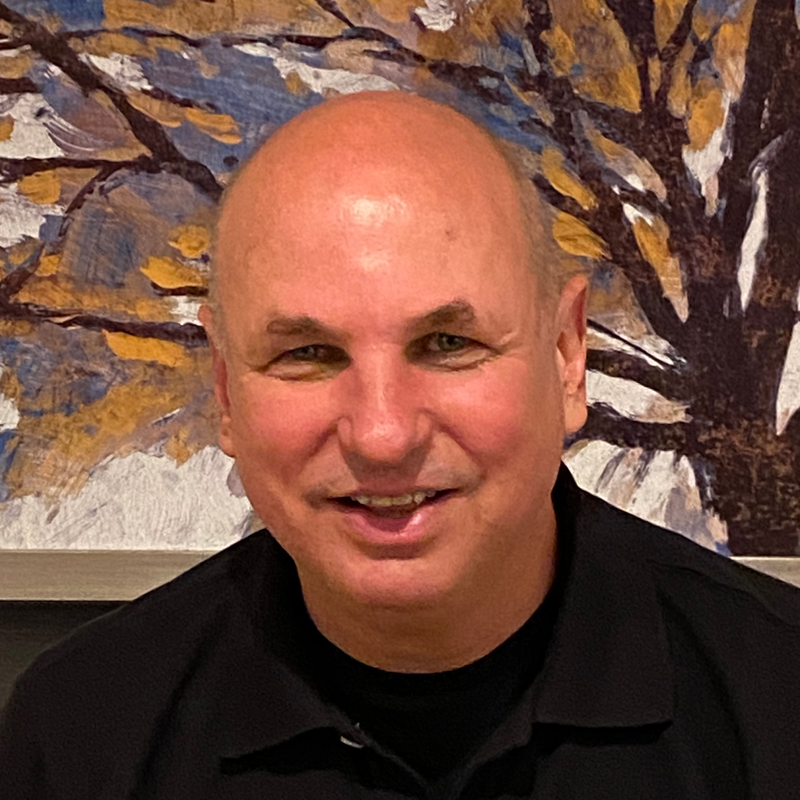
David Yaron
Professor, Chemistry
- Mellon Institute 501
- 412-268-1351
Education
Ph.D., Harvard University, 1990B.S., Wilkes College, 1983
Research
Keywords: Theory, computational, electronic structure theory, machine learning, materials theory, photophysics, spectroscopy
Projects
MACHINE LEARNING OF QUANTUM CHEMICAL MODELS
Quantum chemistry, while highly accurate, is computationally expensive, limiting the size and type of systems that can be studied. Our research leverages machine learning (ML) to significantly reduce this cost while maintaining high accuracy. Unlike traditional ML models that function as black boxes and sacrifice interpretability, we are developing semiempirical quantum chemical (SEQC) models that retain a clear physical and chemical basis for their predictions. In addition to offering chemical insights, our models require significantly less training data than typical deep learning models, thus lowering a major barrier to the development of new ML models. Application areas include organic semiconductors and the design of new catalysts.
LEARNING ENGINEERING FOR CHEMISTRY
We are developing learning resources for chemical education at the college and high school levels, including the REAL CHEM online courseware and the ChemCollective virtual laboratories. These resources adopt a learning engineering approach, utilizing detailed data gathered from student interactions to better understand how students learn and to continuously refine the materials. This approach has led to some surprising findings, such as the observation that, despite starting at vastly different performance levels, all students improve at nearly the same rate. Additionally, while lower preparation in math means students have more to learn, it does not hinder the rate at which they learn chemistry.
Publications
Treating Semiempirical Hamiltonians as Flexible Machine Learning Models Yields Accurate and Interpretable Results
Hu, F.; He, F.; Yaron, D. Journal of Chemical Theory and Computation 19, 18 6185-6196 2023
Design, Synthesis and Aromaticity of an Alternating Cyclo[4]Thiophene[4]Furan
Kawakami, M.; Sharma, D.; Varni, A.; Tristram‐Nagle, S.; Yaron, D.; Kowalewski, T.; Noonan, K. Chemistry – A European Journal 29, 38 10.1002/chem.202300477 2023
ChemVLab+: Integrating Next Generation Science Standards Practices with Chemistry
McCormick, S.; Davenport, J.; Rafferty, A.; Raysor, S.; Yani, J.; Yaron, D. Journal of Chemical Education 100, 6 2116-2131 10.1021/acs.jchemed.2c01106 2023
The Open-Response Chemistry Cognitive Assistance Tutor System: Development and Implementation
King, E.; Benson, M.; Raysor, S.; Holme, T.; Sewall, J.; Koedinger, K.; Aleven, V.; Yaron, D. Journal of Chemical Education 99, 2 546-552 10.1021/acs.jchemed.1c00947 2023
Design, Synthesis, and Properties of a Six-membered Oligofuran Macrocycle
Anthony J. Varni, Manami Kawakami, Stephanie A. Tristram-Nagle, David Yaron, Tomasz Kowalewski and Kevin J. T. Noonan, Organic Chemistry Frontiers 8, 1775-1782 2021
High-throughput Synthesis and Screening of Iridium (III) Photocatalysts for the Fast and Chemoselective Dehalogenation of Aryl Bromides
Mdluli, V.; Diluzio, S.; Lewis, J.; Kowalewski, J.; Connell, T.; Yaron, D.; Kowalewski, T.; Bernhard, S. ACS Catalysis 10, 13 6977-6987 2020
Making Lemonade out of Lemons: Supporting Adoption of Evidence-Based Practices in Response to Educational Disruptions
Titu, P.; Jiang, S.; Perez, A.; Gunes, B.; Kulkarni, C.; Zhu, W.; Rushton, G.; Yaron, D. Journal of Chemical Education 97, 9 3306-3311 2020
Beware the nanovoids
Yaron, D.; Kowalewski, T. Nature Materials 18 1154-1155 2019
A Density Functional Tight Binding Layer for Deep Learning of Chemical Hamiltonians
Li, H.; Collins, C.; Tanha, M.; Gordon, G.; Yaron, D.; Journal of chemical theory and computation 10.1021/acs.jctc.8b00873 2018
Tuning the Molecular Weight Distribution from Atom Transfer Radical Polymerization Using Deep Reinforcement Learning
Li, H.; Collins, C.; Ribelli, T.; Matyjaszewski, K.; Gordon, G.; Kowalewski, T.; and Yaron, D. Mol Syst Des Eng. 3 496-508 10.1039/C7ME00131B 2018
Constant size descriptors for accurate machine learning models of molecular properties
Collins, C.; Gordon, G.; Lilienfeld, O.; Yaron, D. J. Chem. Phys. 148, 241718 10.1063/1.5020441 2018
Conjugated polymers with repeated sequences of group 16 heterocycles synthesized through catalyst-transfer polycondensation
Tsai, C.; Fortney, A.; Qiu, Y.; Gil, R.; Yaron, D.; Kowalewski, T.; Noonan, K. J. Am. Chem. Soc., 138, 21 6798– 6804 2016
A Least-Squares Commutator in the Iterative Subspace Method for Accelerating Self-Consistent Field Convergence
Li, H.; Yaron, D. J. Chem. Theory Comput., 12, 11 5322–5332 2016
Imitation Learning for Accelerating Iterative Computation of Fixed Points in Quantum Chemistry
Matteus, T.; Huang, T.; Gordon, G.; Yaron, D. Paper presented at the 12th European Workshop on Reinforcement Learning (EWRL 2015), Lille, France, 2015
Worked Examples are more Efficient for Learning than High-Assistance Instructional Software
McLaren, B.; Gog, T.; Ganoe, C.; Yaron, D.; Karabinos, M. International Journal of Artificial Intelligence in Education. Vol. 9112 Springer: 710-713 2015
Modeling Field-Induced Quenching in Poly(p-Phenylene Vinylene) Polymers and Oligomers
Legaspi, C.; Peteanu, L.; Yaron, D. The Journal of Physical Chemistry. B 119, 24 7625–34 2015
Making Sense of Students’ Actions in an Open-Ended Virtual Laboratory Environment
Ya’akov, G.; Uzan, O.; Belford, R.; Karabinos, M.; Yaron, D. Journal of Chemical Education 92 (4). American Chemical Society: 610–16 2015
Appointments
| 2013–present | Professor, Carnegie Mellon University |
| 1998–2013 | Associate Professor, Carnegie Mellon University |
| 1992–1998 | Assistant Professor, Carnegie Mellon University |
| 1990–1992 | Postdoctoral Fellow, MIT |
Awards and Distinctions
| 2023 | Richard Moore Award |
| 2019 | Teaching Innovation Award, Carnegie Mellon University |
| 2017 | Teaching Innovation Award, Carnegie Mellon University |
| 2004 | Award for Excellence: Post-secondary Educator Carnegie Science Center Pittsburgh |
| 2003 | Classics Award for Best Learning Object in Chemistry Editor’s Choice for Exemplary Learning Object in any domain Merlot Digital Library |
| 2001 | Julius Ashkin Teaching Award Mellon College of Science, Carnegie Mellon |
| 2000 | Henry Dreyfus Teacher-Scholar Award The Camile and Henry Dreyfus Foundation |
| 1999 | Visiting Professor Ecole Normale Superieure de Cachan, France |